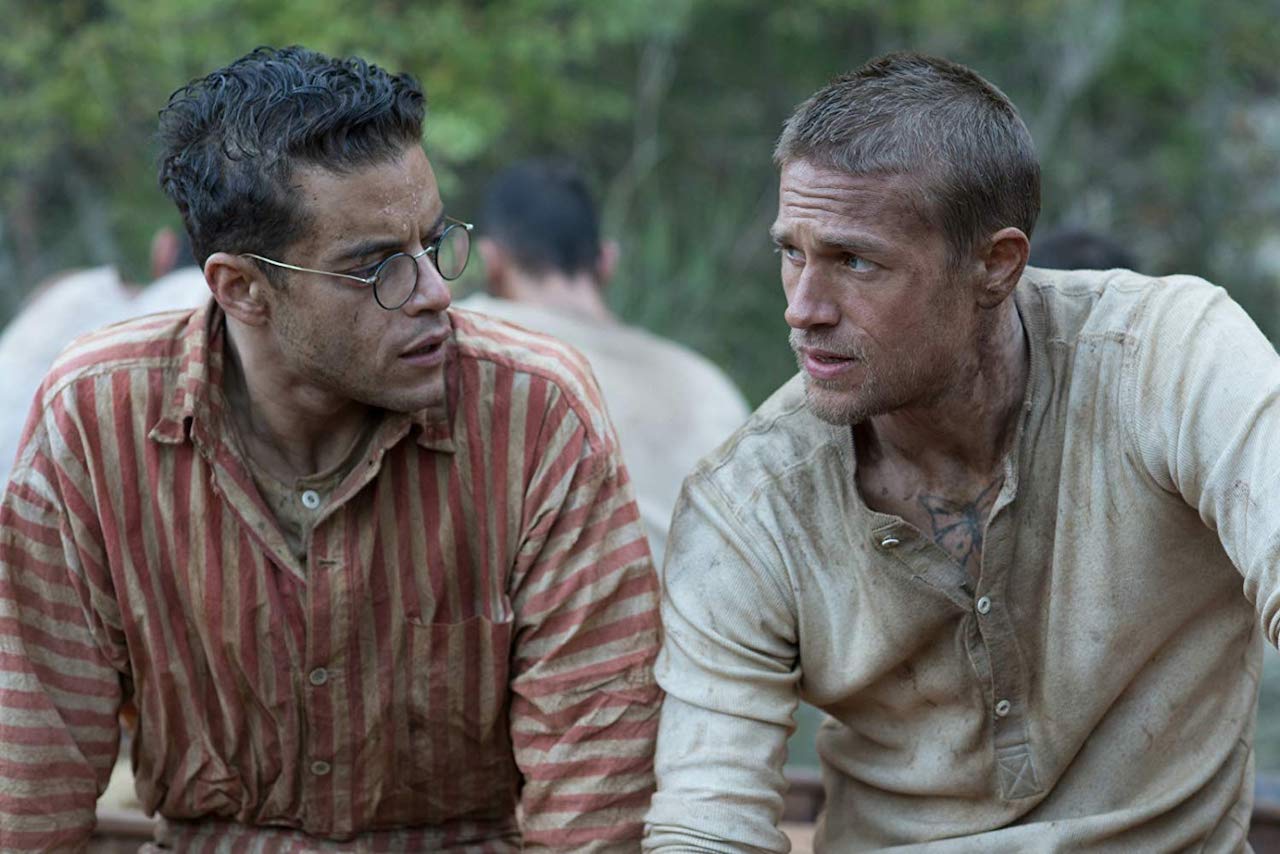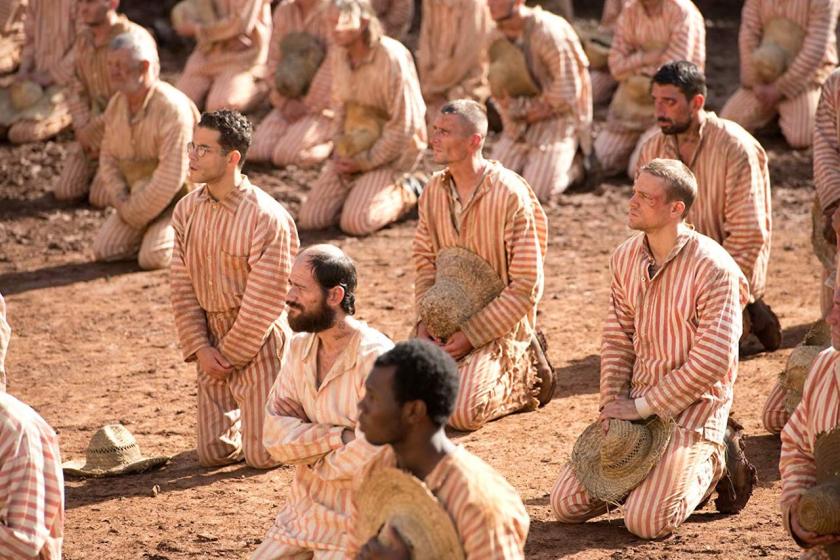The story of Henri Charrière’s gruelling ordeal as a prisoner in French Guiana and eventual escape was a bestseller on everyone’s bookshelf in the 1970s. It didn’t take long for it to become a Hollywood drama, which showcased the gigawatt talents of Steve McQueen and Dustin Hoffman. McQueen ruggedly embodied the titular convict, named after the butterfly tattoo on his chest, and Hoffman reprised a version of the shuffling weirdo he played in Midnight Cowboy. The film still has a rightful place in the pantheon of escape movies including titles as disparate as The Shawshank Redemption, Down by Law and, also starring McQueen, The Great Escape.
So it takes quite some front to go back and tell Charrière’s story all over again. Aaron Guzikowski’s screenplay is even unabashedly based on its predecessor by Dalton Trumbo and Lorenzo Semple Jr. Thus we see Charrière’s arrest in France when he is framed for murder, and is forcibly extracted from the good life with his beautiful lover. At the same time the counterfeiting hustler Louis Dega is charged for fraud. Thus they find themselves on the same ship bound for French Guiana where a brutal penal colony is none too focussed on rehabilitation. Dega hires Charrière to protect him on the journey, and promises to fund his escape. This transactional liaison eventually tranforms into a warmer friendship while Charrière refuses to be beaten into submission by years of solitary confinement. That’s essentially the plot. What does this version from Michael Nour, a Danish director mainly known for documentaries, have to offer? In casting Remi Malek, last seen strutting in the pumps of Freddie Mercury, as Charrière’s minted sidekick, Papillon calls on Hollywood’s current go-to oddball. With his well-parted hair and puckered embouchure, he never quite loses the aura of clean-shaven and well-scrubbed boyishness for all the unseemly ordeals he must suffer.
That’s essentially the plot. What does this version from Michael Nour, a Danish director mainly known for documentaries, have to offer? In casting Remi Malek, last seen strutting in the pumps of Freddie Mercury, as Charrière’s minted sidekick, Papillon calls on Hollywood’s current go-to oddball. With his well-parted hair and puckered embouchure, he never quite loses the aura of clean-shaven and well-scrubbed boyishness for all the unseemly ordeals he must suffer.
Stepping into McQueen’s striped fatigues is Charlie Hunnam, who seems to specialise in men who put themselves through South American hell. See also The Lost City of Z. What Hunnam brings to such odysseys is a granite determination to endure, without suggesting much in the way of spiritual depth. He is also ripped as almost all modern actors must be these days, helpfully as the script calls on him to throw himself into punch-ups like an old-school comic-book hero. These come along with gruelling regularity as, to protect his investment, Charrière throws his fists at all sorts of outsize thugs and lunks.
As a record of institutional barbarism this remake ticks the boxes. There’s mud and cruelty, corruption and the regime’s dehumanising effort to extinguish hope. And it competently supplies moments of epic spectacle. Hunnam and Malek don’t quite match the sentimental odd-couple connection between their predecessors. The film is at its most impactful at the very end, when black and white images of the real convicts of Devil’s Island are shown in documentary footage.















Add comment